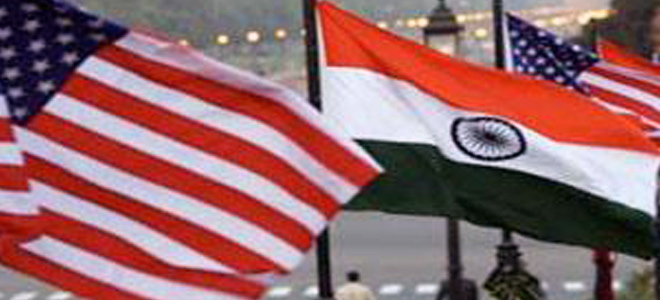
A file photo.
NEW DELHI (PTI): In the midst of China's military belligerence in eastern Ladakh, the US on Tuesday said it stands firmly with India to confront threats to its sovereignty as the two countries vowed to ramp up their overall security ties, and inked the strategic defence pact, BECA, during the third edition of the Indo-US 2+2 dialogue here.
During the high-level dialogue, led by External Affairs Minister S Jaishankar and Defence Minister Rajnath Singh from the Indian side and their US counterparts Mike Pomeo and Mark Esper from the American side, the two countries denounced the use of terrorist proxies and asked Pakistan to expeditiously bring to justice the perpetrators of all terror attacks, including 26/11 Mumbai, Uri, and Pathankot.
In a blunt criticism of China, US Secretary of State Pompeo cited killing of 20 Indian Army personnel in the Galwan Valley in eastern Ladakh in a clash with the Chinese military, and asserted that both India and the US are taking steps to strengthen cooperation against all threats and not just those posed by the Chinese Communist Party (CCP).
Top government sources said China's "expansionist behaviour" in eastern Ladakh, Indo-Pacific region and in various parts of the world was a major talking point during the meeting with both sides vowing to firmly confront the challenges in the region and beyond as part of their common vision and shared interests.
"This morning we visited the national war memorial to honour the brave men and women of the Indian Armed forces who sacrificed for the world's largest democracy including the 20 soldiers who were killed by the PLA forces in Galwan Valley in June," Pompeo said at a joint media briefing with Jaishankar, Singh and Esper.
"The US will stand with people of India to confront threats to their sovereignty and their liberty," he added.
In the talks, which were held just a week before the US presidential elections, the two countries inked a total of five agreements including the long-negotiated Basic Exchange and Cooperation Agreement (BECA) that will allow sharing of high-end military technology, classified satellite data and critical information between their militaries.
The other pacts will facilitate cooperation in areas of nuclear energy, earth sciences and Ayurveda.
The US Secretary of State also said that the challenge of defeating the coronavirus pandemic that came from Wuhan figured in the "robust discussions" about the Chinese Community Party.
"Our leaders and our citizens see with increasing clarity that the CCP is no friend to democracy, the rule of law transparency...I am glad to say that the US and India are taking steps to strengthen our cooperation against all manner of threats and not just those posed by the Chinese communist party," Pompeo said.
A joint statement issued after the talks said the two sides also denounced the use of terrorist proxies and asked Pakistan to take immediate, sustained and irreversible action to ensure that no territory under its control is used for terrorist attacks, and to expeditiously bring to justice the perpetrators of all such attacks, including 26/11 Mumbai, Uri, and Pathankot.
"They emphasised the need for concerted action against all terrorist networks, including al-Qaeda, ISIS/Daesh, Lashkar-e-Tayyiba (LeT), Jaish-e-Mohammad (JeM) and Hizb-ul-Mujahideen," it said.
At the press conference, US Defence Esper said the US stands "shoulder-to-shoulder" in support of a free and open Indo-Pacific for all, particularly in view of "increasing aggression and destabilising activities" by China, and noted that the bilateral defence cooperation is continuing to grow.
"I am pleased to report that today we made substantial progress in further strengthening our relationship," he said.
Esper said the US reaffirmed its commitment to a comprehensive and forward looking defence partnership with India which includes bilateral defence cooperation in the Indian Ocean Region, South East Asia and in the broader Indo-Pacific.
In his remarks, Defence Minister Singh said both sides shared assessment of the security situation across the Indo-Pacific, and reaffirmed commitment to peace, stability and prosperity of all countries in this region.
"We also agreed that upholding the rules-based international order, respecting the rule of law and freedom of navigation in the international seas and upholding the territorial integrity and sovereignty of all states are essential," Singh said.
On his part, External Affairs Minister Jaishankar said the Indo-Pacific region was a "particular focus of our talks", adding a "multi-polar world must have a multi-polar Asia as its basis", comments seen as a clear articulation of India's position that China's dominance is not acceptable to it.
"We reiterated the importance of peace, stability and prosperity for all countries in this region. As Raksha Mantri stated, this is possible only by upholding the rules-based international order, ensuring the freedom of navigation in the international seas, promoting open connectivity and respecting the territorial integrity and sovereignty of all states," Jaishankar said.
The external affairs minister said the discussions also covered developments in India's neighbouring countries.
"We made clear that cross-border terrorism is completely unacceptable. In Afghanistan, India's stakes in its security and stability are evident, as is our willingness to contribute to international efforts to that end," he said.
In the talks, the two sides discussed cooperation in a range of sectors including nuclear energy, oil and gas, space, healthcare, cyber security, defence trade and people-to-people contact.
The two sides noted ongoing discussions by the United States Trade Representative and India's Ministry of Commerce and Industry to reach an understanding on improving market access, removing barriers to trade, and improving the business environment.
"The ministers noted with satisfaction the significant strides made under the four pillars of the strategic energy partnership (SEP) covering oil and gas, power and energy efficiency, renewables and sustainable growth. They also appreciated the progress made under the India-US Gas Task Force and the launch of industry-led projects," the joint statement said.
Recalling the historic India-US civil nuclear agreement, the ministers welcomed the project initiatives between Nuclear Power Corporation of India Limited (NPCIL) and Westinghouse Electric Company (WEC) for the construction of six nuclear reactors at Kovvada.
On the Indo-Pacific, both sides reiterated commitment to maintaining a free, open, inclusive, peaceful, and prosperous Indo-Pacific built on a rules-based international order, underpinned by ASEAN centrality, rule of law, sustainable and transparent infrastructure investment.
"Highlighting the importance of securing the economic and security interests of all stakeholders having a legitimate interest in the region, the ministers welcomed the growing understanding on the Indo-Pacific among like-minded countries," the joint statement said.
The two sides reaffirmed that closer India-US cooperation will support shared interests in promoting security and prosperity in the Indo-Pacific region and beyond, it added.
"They also emphasised that the Code of Conduct in the South China Sea should not prejudice the legitimate rights and interests of any nation in accordance with international law," it said.
After the 2+2 talks, Pompeo and Esper called on Prime Minister Narendra Modi and discussed several issues of regional and global concern.
"The Secretary and the Prime Minister pledged to further strengthen the US-India Comprehensive Global Strategic Partnership to better ensure the security and prosperity of both countries, the Indo-Pacific region, and the world," the US State Department said in a brief statement.
In the talks, both sides also discussed their shared interest in promoting a sovereign, peaceful, united, democratic, inclusive, stable and secure Afghanistan, including support for an Afghan-led and Afghan-owned peace process.
"They applauded India's development assistance, and efforts to build trade linkages and multi-modal connectivity infrastructure for Afghanistan to enhance its regional connectivity to sustain growth and development over the long term," the joint statement said.
The US also congratulated India for its non-permanent membership of the United Nations Security Council (UNSC) for the term (2021-2022).
"The US also reaffirmed its continued strong support for India's permanent membership in a reformed UNSC as well as for India's early entry into the Nuclear Suppliers Group (NSG)," it said.
Asked about holding of the 2+2 dialogue just ahead of the US presidential polls, Jaishankar said the previous two rounds of the dialogue were also held around the same time, adding that the "growth of the Indo-US relationship has been very very remarkable over the last 20 years but I would say last few years."
"This is a relationship that serves our national interest well as it does that of the US. But what is equally important is that the Indo-US collaboration can be a force of good. So in that sense it is truly global, it is truly comprehensive, it is truly strategic and that is the reason why we are meeting," he said.
In his opening remarks at the talks, Singh talked about the adverse economic impact of the COVID-19 pandemic, noting that India has implemented a whole-of-government approach to revive the industrial and service outputs.
"We are providing relief to all those badly impacted by the pandemic," he said.
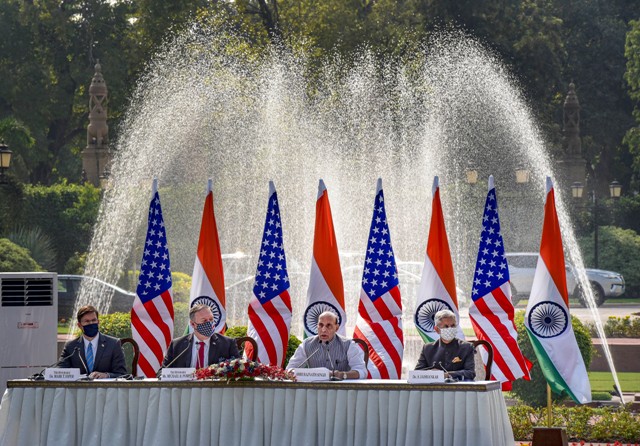 Previous Article
Previous Article Next Article
Next Article
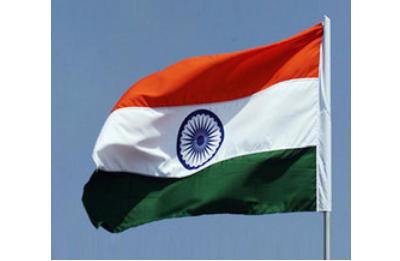

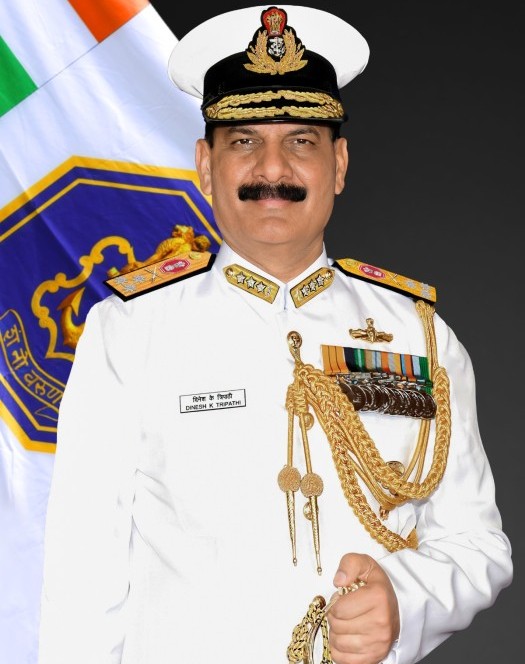
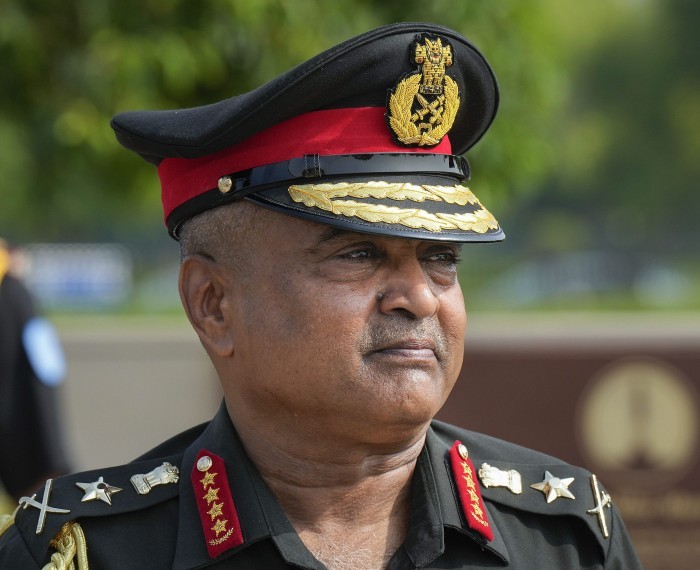

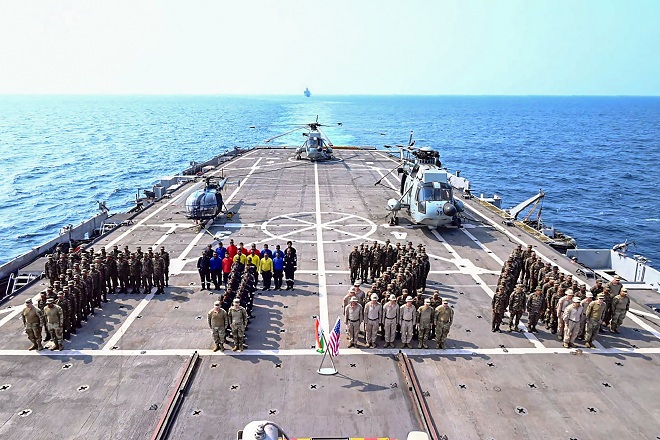
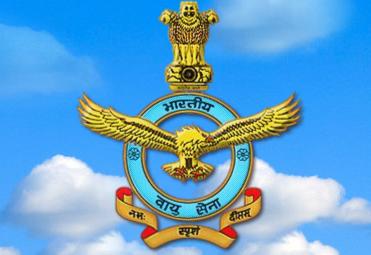

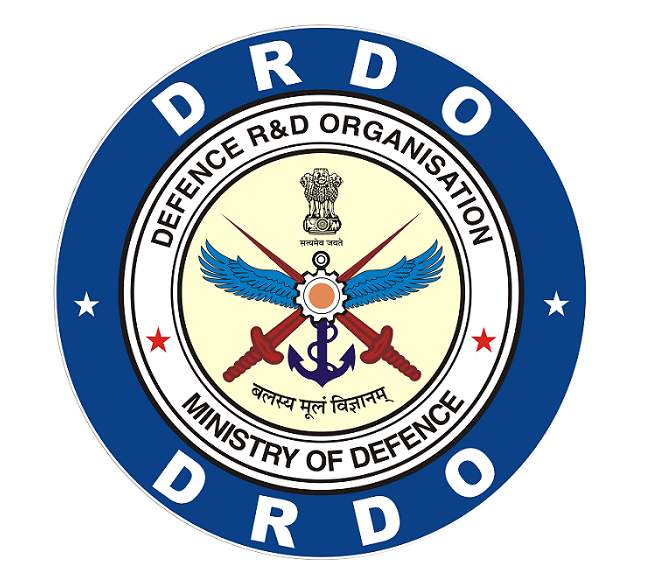
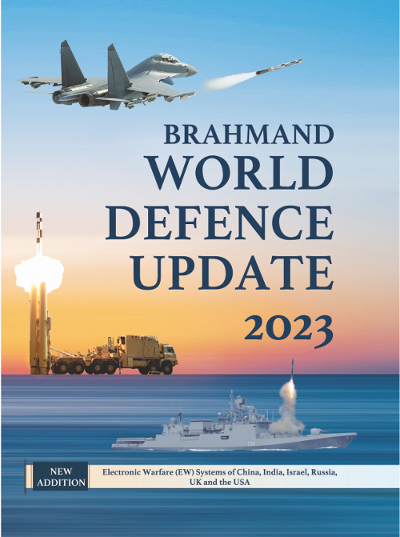




The Indian Air Force, in its flight trials evaluation report submitted before the Defence Ministry l..
view articleAn insight into the Medium Multi-Role Combat Aircraft competition...
view articleSky enthusiasts can now spot the International Space Station (ISS) commanded by Indian-American astr..
view article